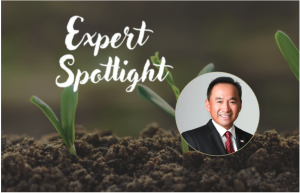Climate Change By Lakshmipriya U. P. (University) From Qatar
What Is Climate Change?
Climate change means that the Earth’s weather and temperatures are changing over a long time.
These changes can happen naturally, like when the sun gets hotter or when big volcanoes erupt. But since the 1800s, people have been the main cause of climate change. This is because humans burn fuels like coal, oil, and gas for things like heating and driving.
When we burn these fuels, it releases greenhouse gases.
These gases act like a blanket around the Earth, trapping heat from the sun and making the planet warmer.
The main gases causing climate change are carbon dioxide and methane.
These come from activities like driving cars using gasoline or burning coal for heating. Cutting down forests can also release carbon dioxide. Farming and oil and gas activities are big sources of methane. The main areas that create these gases are energy, industry, transportation, buildings, farming, and land use.
Humans Are Responsible for Global Warming
Scientists have found that humans are responsible for almost all the warming of the planet in the last 200 years.
Human activities like those mentioned earlier are causing greenhouse gases that are making the world warmer faster than it has ever been in the last two thousand years.
The average temperature of the Earth’s surface is now between 1.34°C and 1.41°C warmer than it was in the late 1800s, before the industrial revolution.
This is warmer than it has been in the last 100,000 years. The last ten years, from 2015 to 2024, were the hottest on record, and each of the last four decades has been warmer than any previous decade since 1850.
Many people think that climate change mainly means getting hotter.
But rising temperatures are just one part of the problem. Since the Earth is a connected system, changes in one part can affect other parts.
The Effects of Climate Change
Some of the effects of climate change include extreme droughts, water shortages, serious fires, rising sea levels, floods, melting polar ice, powerful storms, and loss of animal and plant life.

(Credit to oneearthonechange.com)
People are experiencing climate change in many ways.
It can affect our health, our ability to grow food, where we live, our safety, and our jobs. Some people, like those living in small island nations and developing countries, are more vulnerable. Sea level rise and saltwater entering land have already forced entire communities to move. Long-term droughts are putting people at risk of not having enough food. In the future, more people will likely be displaced because of weather-related events.
Every Bit of Warming Matters
In a series of reports by the United Nations, thousands of scientists and government experts agreed that keeping global temperature rise to no more than 1.5°C would help avoid the worst consequences and keep the climate livable.
However, the policies currently in place are leading to a temperature rise of up to 3.1°C by the end of the century.
The emissions that cause climate change come from all parts of the world and affect everyone, but some countries produce much more than others.
The six largest emitters (China, the United States, India, the European Union, Russia, and Brazil) together are responsible for more than half of all greenhouse gas emissions in 2023. In contrast, the 45 least developed countries account for only 3% of global emissions.
Everyone must take action on climate change, but those who produce the most emissions have a greater responsibility to act first.
We Face a Big Challenge, But We Already Know Many Solutions
There are many climate solutions that can be good for the economy and help improve lives while protecting the environment.
We also have global plans and agreements to help us move forward, such as the Sustainable Development Goals, the UN Framework Convention on Climate Change, and the Paris Agreement. Three main types of action are needed: reducing emissions, adapting to the impacts of climate change, and getting the money needed for these changes.
Switching from fossil fuels to renewable energy like solar and wind will reduce emissions that cause climate change.
But we need to act now. Although more countries are committing to achieving net-zero emissions by 2050, emissions must be cut in half by 2030 to keep warming under 1.5°C. To achieve this, use of coal, oil, and gas must be reduced by at least 30% by 2030 to prevent catastrophic climate change.
Adapting to the effects of climate change helps protect people, homes, businesses, jobs, infrastructure, and natural ecosystems.
This adaptation is needed for both the current and future impacts of climate change. While adaptation is needed everywhere, it should be focused on the most vulnerable people who have the least resources to deal with climate disasters. The return on investment can be high. For example, early warning systems for disasters can save lives and property, and the benefits can be up to 10 times the initial cost.
We Can Pay the Cost Now, or Pay a Much Higher Price Later
Climate action requires a lot of money from governments and businesses.
But not taking action is even more expensive. One key step is for developed countries to help developing countries prepare for the impacts of climate change and move towards greener economies.
What Can Individuals Do About Climate Change?
Big changes need to come from governments and businesses, but individuals can also help by doing things like:
– Taking fewer flights
– Using less energy
– Improving the insulation and energy efficiency of their homes
– Switching to electric vehicles or living without a car
– Replacing gas heating with electric systems like heat pumps
– Eating less red meat
Together we can create a better world. So let’s follow the guidelines to reduce global climate change and welcome a new world for the future generations.
By Lakshmipriya U. P.
M.P.M.M.S.N Trusts College, Shoranur , India






